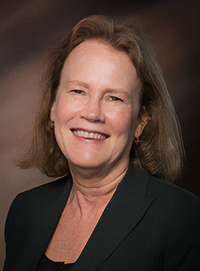
Chief Scientific Officer
National Kidney Foundation (NKF)
The battle against kidney disease is at a pivotal moment, marked by significant advances in treatment and an urgent need for further innovation. Dr. Kerry Willis, PhD, Chief Scientific Officer of the National Kidney Foundation (NKF), offers an in-depth perspective on these transformative efforts in this comprehensive interview.
Dr. Willis, with her extensive experience and leadership at NKF, illuminates the complexities of kidney disease treatment and research, revealing the innovative strategies and rigorous advocacy that propel the foundation’s mission.
This blog explores Dr. Willis’s detailed insights into how the critical role that the NKF plays in both advocating for patients and driving the scientific advancements that could one day eradicate kidney disease as a major health concern.
Each section of our discussion provides a glimpse into the hard work and strategic planning involved in pushing the boundaries of what’s possible in the management and treatment of kidney disease.
XTALKS CLINICAL EDGE: Issue 2 — The National Kidney Foundation’s Interview
Xtalks Clinical Edge is a magazine for clinical research professionals and all who want to be informed about the latest trends and happenings in clinical trials. This magazine immerses you in a world where industry leaders, patient advocates and top researchers converge to provide the most insightful perspectives on clinical trials.
Advancing Clinical Trials in Kidney Disease
Historically, kidney disease treatments were limited, with angiotensin-converting-enzyme inhibitors (ACEIs) and angiotensin II receptor blockers (ARBs) being the primary options. However, recent developments have introduced specific treatments like sodium-glucose cotransporter-2 (SGLT2) inhibitors and nonsteroidal mineralocorticoid receptor antagonists (nsMRAs) that delay disease progression.
Dr. Willis highlights the NKF’s decade-long effort to establish surrogate endpoints for clinical trials, such as changes in glomerular filtration rate (GFR) and urine albumin-creatinine ratio (ACR). These efforts, in collaboration with regulatory bodies like the US Food and Drug Administration (FDA) and the European Medicines Agency (EMA), have revolutionized clinical trial methodologies, enabling shorter, more feasible studies.
Dr. Willis explains, “We’ve been working for about ten years to validate surrogate endpoints for use in clinical trials. We work closely with the cardiorenal division of the FDA and have been able to get a 30 percent or a 40 percent decline in GFR or also a change in the slope of decline to be validated endpoints and also specific reductions in the urine ACR.”
The NKF also plays a crucial role in patient advocacy, maintaining a comprehensive Kidney Diseases Clinical Trial Directory to inform patients about ongoing clinical trials, ensuring wider participation, and enhancing the diversity of treatment options available.
The NKF is also conducting the KidneyCARE Study, where patients can contribute to research by sharing their personal experiences with kidney disease through survey responses. This includes a comprehensive registry of individuals at every stage and with all forms of kidney disease.
Addressing Enrollment Challenges
In addressing the substantial challenges of patient enrollment in clinical trials for kidney disease, Dr. Willis lists some barriers that prevent broader participation. She highlights a stark reality: Only a fraction of those affected by kidney disease in the US are aware they have it — about ten percent. This low diagnosis rate severely limits the pool of potential participants for clinical studies.
Dr. Willis emphasizes, “There are about 37 million people who have kidney disease in the US. And there are a lot of barriers to clinical trial participation including that people with kidney disease tend to be disproportionately affected by social determinants of health.”
Socioeconomic factors play a substantial role in limiting trial participation. Many patients with kidney disease have lower socioeconomic status, which can restrict their ability to travel to trial sites, often located in major academic medical centers. The need for regular travel, taking time off work and the overall logistics of participating can be daunting for many.
“We’ve been very active in collecting data, performing meta-analyses and working with the FDA and EMA.
We’re a patient advocacy organization but we’re also an innovator in the kidney disease space. We have a very large database of patients at all stages of kidney disease and we assist with letting people know about clinical trials that they might be eligible for.”
— Dr. Kerry Willis
To mitigate these challenges, Dr. Willis thinks decentralized clinical trials can substantially reduce the need for physical travel by allowing data collection and monitoring to happen remotely. She is optimistic about this approach, stating, “If you’re in a partially or fully decentralized trial, then having to take time off work and other burdens are less of a barrier.”
Dr. Willis also discusses the mistrust in the healthcare system, particularly among communities disproportionately affected by kidney disease, such as African Americans and Hispanics.
She notes, “Building trust is essential, and it’s one of the hardest barriers we face. Historical inequities in healthcare contribute to this distrust, and we need to address these directly.”
Furthermore, initiatives like Kidney Research Connect aim to bridge the gap between patients and researchers, fostering a more patient-centered approach in trial design and execution. Kidney Research Connect is an online platform that connects patients and caregivers with researchers focused on patient-centered outcomes research (PCOR).
The Future of Clinical Trials in Nephrology
Looking towards the future of clinical trials in kidney disease, Dr. Willis expresses both optimism and caution about the increasing integration of digital technologies and decentralized methods. These approaches are seen as pivotal in transforming the landscape of clinical research by making it more patient-centric and efficient.
Dr. Willis discusses the promise of decentralized clinical trials, which leverage digital tools and remote monitoring to gather data. This method significantly reduces the logistical burdens on participants, such as travel and time off work, making clinical trials more accessible to a broader range of patients.
Digital technologies, especially wearable devices and mobile health apps, are at the forefront of this transformation. These tools allow continuous monitoring of patients’ health parameters in real time, providing a wealth of data that can lead to more nuanced insights into treatment efficacy and patient health outcomes. Dr. Willis is enthusiastic about the potential: “With wearables and mobile apps, we may track everything from medication adherence to physical activity and diet. This real-time data collection enhances our understanding of how treatments work in daily life, not just under clinical conditions.”
However, Dr. Willis also highlights the challenges that come with these advancements, particularly around data security and patient privacy. She emphasizes the importance of safeguarding patient information, saying, “I think this probably also needs to be addressed to get patients comfortable with that kind of trial.”
NKF’s Role as a Catalyst for Change
The NKF’s collaborative efforts with industry through platforms like the Kidney Research Connect and educational initiatives are pivotal in enhancing patient enrollment in clinical trials. By continuing to innovate and advocate, the NKF not only supports the development of new treatments but also empowers patients, enabling them to take an active role in their health management and the broader fight against kidney disease.
The educational efforts extend beyond patient recruitment for trials. The NKF is deeply involved in educating healthcare providers, especially primary care physicians, about the importance of early diagnosis and treatment of kidney disease.
Dr. Willis adds, “By educating providers about the significance of kidney function tests and the implications of early signs of kidney damage, we can catch and treat kidney disease before it progresses to more severe stages.”
The NKF, under the leadership of Dr. Willis, has emerged as an important stakeholder in catalyzing change within the landscape of kidney disease research and treatment. Through strategic partnerships, educational initiatives and advocacy, the NKF is enhancing the ecosystem around clinical trials and patient care, pushing boundaries to ensure advancements in kidney health reach those who need them most.
To have your organization featured on Xtalks, please email Vera Kovacevic, PhD, at: [email protected]













Join or login to leave a comment
JOIN LOGIN